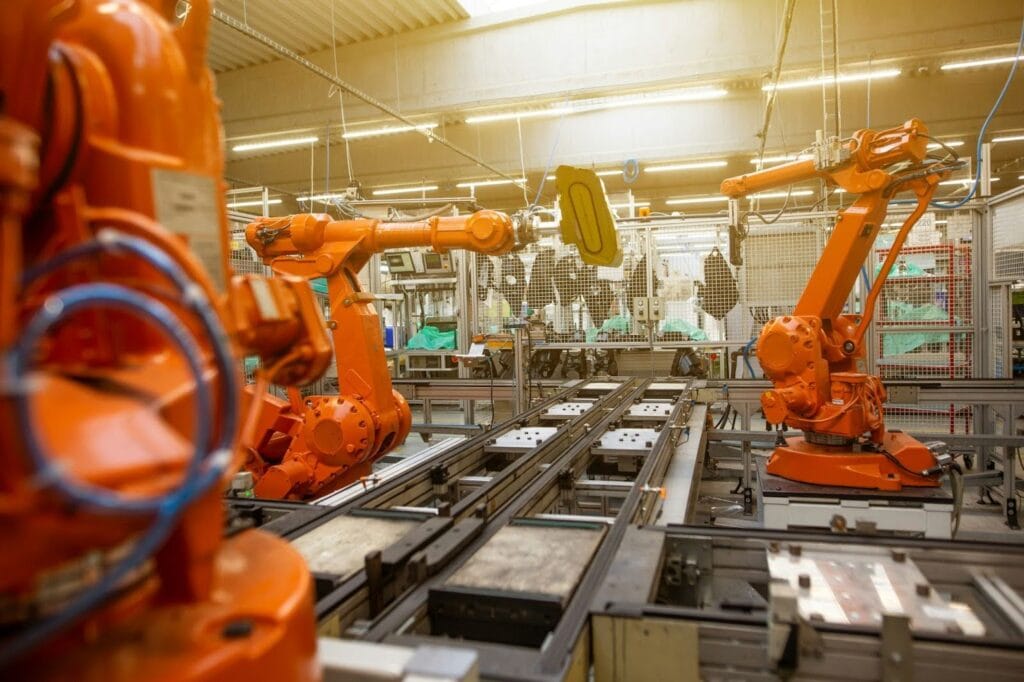Contract Manufacturing Explained: Benefits, Tips, and Challenges

Contract manufacturing plays a key role in modern supply chains. It can enable businesses to focus on core competencies while leveraging specialized expertise and cost efficiencies. This strategic outsourcing approach enhances operational flexibility and positions companies to scale rapidly in response to market demands.
In today’s globalized economy, contract manufacturing has become a key component of modern supply chains. It plays a huge part in industries like electronics, pharmaceuticals, and consumer goods.
This practice allows companies to outsource their production processes to specialized contract manufacturing services, enabling them to focus on their core competencies. Therefore, businesses can enhance efficiency, reduce operational costs, and scale production without the burden of maintaining extensive in-house facilities.
This guide can provide a comprehensive understanding of contract manufacturing, including its benefits, risks, and best practices. We will equip you with the knowledge to make informed decisions and effectively utilize industrial contract manufacturing.
What is Contract Manufacturing?
Contract manufacturing is a business model where a company outsources its production process to a specialized contract manufacturing company. This arrangement allows the hiring company to delegate the responsibility of producing goods, while they concentrate on other aspects of their business.
It may include supply chain management, research and development, marketing, and distribution. One may find different types of contract manufacturing services. However, their main goal remains the same. It is to create different production-related activities.
The third-party manufacturer has the necessary expertise, resources, and technology. It takes on the task of producing the company’s products according to specified requirements.
How Does it Work?
The services provided by original equipment manufacturers encompass a broad range of production-related activities. These can include product design, where the manufacturer may collaborate with the company to refine or develop the product’s design. They need to ensure it is cost-effective and manufacturable.
Once the design is finalized, the manufacturing process begins, which can involve various stages of production depending on the complexity of the product. Additionally, contract manufacturers often handle the assembly of components.
They ensure that the final product meets quality standards. Packaging is another important service, where the manufacturer prepares the finished products for distribution. They often adhere to specific branding and regulatory criteria.
Through contract manufacturing, companies can benefit from the expertise, scale, and efficiency of established manufacturers. It allows them to bring products to market faster and more cost-effectively. This strategic partnership enables businesses to remain competitive by leveraging the specialized capabilities of contract manufacturers.
Benefits of Contract Manufacturing Services
Contract manufacturing offers several advantages that can significantly enhance a company’s operational efficiency and competitiveness. By outsourcing production, businesses can tap into specialized expertise, reduce costs, and maintain greater flexibility in responding to market demands. Below are the key benefits of contract manufacturing:
Cost Efficiency
One of the most significant benefits of contract manufacturing is cost efficiency. Businesses might avoid having to make the large capital expenditures necessary to establish and maintain their manufacturing facilities by outsourcing production to a third-party manufacturer.
This includes the costs of purchasing machinery, setting up production lines, and hiring specialized staff. On the other hand, contract manufacturers already have the infrastructure and expertise, allowing companies to produce goods at a lower cost.
Additionally, the economies of scale achieved by contract manufacturers, who often serve multiple clients, further drive down production costs. This cost efficiency can be particularly advantageous for smaller businesses or startups.
Focus on Core Business
Outsourcing production through contract manufacturing allows companies to concentrate on their core competencies. By freeing up resources and time that would otherwise be spent on manufacturing, businesses can focus on areas that directly contribute to their competitive advantage.
For instance, a company might channel its efforts into developing innovative products or enhancing customer experiences, while leaving the complex and resource-intensive manufacturing process to experts.
This strategic focus can lead to better product offerings, stronger brand positioning, and improved customer satisfaction. It can ultimately drive business growth.
Flexibility and Scalability
Contract manufacturing provides businesses with the flexibility to adjust production volumes according to market demand. They can do it without the risks associated with owning and operating a factory.
For example, during periods of high demand, a company can quickly scale up production by leveraging the capacity of its contract manufacturer. Conversely, during slower periods, they can scale down production, helping the company avoid fixed costs. They can manage inefficiencies in maintaining underutilized facilities.

This scalability is particularly beneficial in industries with fluctuating demand or seasonal variations. Why? It allows companies to respond swiftly to changes in the market without incurring unnecessary expenses.
Additionally, contract manufacturers often can produce a wide range of products. It helps companies to diversify their product lines without significant upfront investment.
Expertise and Risk Mitigation
Contract manufacturers often possess specialized knowledge and experience in specific production processes, materials, or technologies. By partnering with these experts, companies can tap into advanced manufacturing techniques and innovative solutions that they might not have in-house.
This access to specialized expertise can lead to higher-quality products, improved manufacturing efficiency, and the ability to stay competitive in rapidly evolving industries. Contract manufacturing can help companies mitigate various risks associated with production.
By outsourcing, businesses reduce the financial risks tied to capital investments in manufacturing infrastructure. Moreover, the responsibility for maintaining and upgrading production equipment, managing supply chains, and ensuring compliance with regulations often falls on the contract manufacturer. It can reduce the operational risks for the hiring company.
Choosing the Right Contract Manufacturer
Selecting the right contract manufacturer is a key decision. It can significantly impact the success of your outsourcing strategy. The right partner should align with your business goals, ensuring your products are manufactured to the highest standards while meeting regulatory requirements. Here are some key factors to consider when choosing a contract manufacturer:
- Quality Assurance: You must select a manufacturer with robust quality control systems. It ensures that every product meets your specifications and maintains consistent quality standards. These things are important for customer satisfaction and brand reputation.
- Experience and Reliability: Look for a partner with proven experience in your industry and a track record of reliability. An experienced manufacturer will be better equipped to handle potential challenges and provide insights to improve the manufacturing process.
- Technological Capability: Evaluate the technological capabilities of the manufacturer. Ensure they have the equipment and expertise to work with the latest innovations. They must also have the tools for manufacturing processes relevant to your products.
- Compliance and Certifications: Verify that the manufacturer complies with all relevant regulations and industry standards. This includes holding necessary certifications, such as ISO, GMP, or any industry-specific certifications. It will ensure that the manufacturing process adheres to legal and safety requirements.
Challenges in Contract Manufacturing
While contract manufacturing offers numerous benefits, it also presents certain challenges to businesses. Brands must navigate these challenges to ensure a successful partnership. Below are some common challenges and strategies to address them:
Communication Barriers
Geographical and language differences can lead to communication challenges, impacting project timelines and outcomes.
To mitigate these issues, companies should establish clear communication protocols, such as regular video conferences and using project management tools for real-time updates. Employing bilingual project managers can also help bridge language gaps.
Quality Control Issues
Outsourcing production can result in inconsistent quality levels. Hence, businesses should work with manufacturers with strong quality control systems and conduct regular audits. Establishing clear quality benchmarks and inspection processes ensures the final products meet required standards.
Intellectual Property Risks
Sharing sensitive designs with third-party manufacturers poses risks to intellectual property. To protect IP, companies should use non-disclosure agreements. They must conduct due diligence on the manufacturer’s reputation, and consider splitting production among multiple partners. This approach minimizes the risk of unauthorized use or disclosure of proprietary information.
Future Trends in Contract Manufacturing
The future of contract manufacturing is set for significant transformation, driven by technological advancements and evolving market demands. One major trend is the increased adoption of automation and artificial intelligence (AI) in manufacturing processes.
As companies seek to enhance efficiency and reduce human error, contract manufacturers may invest more in automated production lines, robotics, and AI-driven quality control systems.
Sustainability is also becoming increasingly important in the industry. As consumers and businesses prioritize environmentally friendly practices, contract manufacturers adopt greener manufacturing methods. It could involve using renewable energy, reducing waste, and sourcing sustainable materials.
Another trend gaining momentum is the rise of private-label manufacturing. This approach allows companies to leverage the expertise and infrastructure of established manufacturers while branding products under their names.
Businesses seek to expand their product lines and enter new markets without significant investment in production facilities, meanwhile, private-label manufacturing offers a flexible and cost-effective solution.
Finally, global trade policies will continue to impact contract manufacturing. Changes in tariffs, trade agreements, and regulations could influence outsourced production.
Final Thoughts
Contract manufacturing plays a key role in modern supply chains. It can enable businesses to focus on core competencies while leveraging specialized expertise and cost efficiencies. This strategic outsourcing approach enhances operational flexibility and positions companies to scale rapidly in response to market demands.
However, the success of contract manufacturing depends on choosing the right partner and effectively managing potential challenges.
As the industry evolves with trends like increased automation and sustainability, adaptable businesses can harness the full potential of contract manufacturing in a dynamic global market.
